78 F. high at MSP Thursday.
71 F. average high on September 17.
77 F. high on September 17, 2014.
2.37" rain fell at MSP International Airport, a new 24-hour rainfall record for September 17.
September 18, 1997:
An F3 Tornado destroyed several buildings and numerous others damaged.
Hundreds of trees were knocked down. A number of cattle were also killed
in a barn that collapsed. One man was injured when the tornado engulfed
his car and threw it into a nearby woods. A second man was critically
injured when his garage collapsed. He died several weeks later. The
total path length of the tornado from 1 NE of Lastrup to Onamia was 17
miles. Total property damages were estimated at $1.7 Million. In total, 6
tornadoes touched down in Morrison, Mille Lacs, and Kanabec.
September 18, 1991: Duluth got a 2.5 inch summer snowstorm. (Fall was still five days away)
September 18, 1971:
A brush fire at Lake Alexander in Morrison County started a 10-foot
wide, 50-foot high "fire whirl." It moved out over the lake, overturned a
1,800 pound pontoon boat, and then dissipated as it moved back to
shore.
September 18, 1903: 3.75 inches of rain fell in the Minneapolis area.
Suddenly September
Warming Up Again Next Week - MSP Rainfall Record Thursday
"A
bank is a place where they lend you an umbrella in fair weather and ask
for it back when it begins to rain" wrote Robert Frost. Yes, I've found
many banks are happy to lend you money - if you don't really need it.
All
of us are getting a return on our summer weather investment; an extra
month of summer this year. The maps look more like mid-August than
mid-September. We shouldn't be too shocked.
Meteorological summer was
the hottest since global records began in 1879. All that heat that's
been going into the oceans is starting to juice the atmosphere; the El
Nino now brewing in the Pacific may be one of the strongest on record.
Which
is a long way of saying September will be considerably warmer than
average across Minnesota. After cooling off today 70s return next week;
GFS model data hinting at more 80s about 8-
10 days from now.
The ECMWF ("Euro") had the right idea clearing us out late
tonight. All the models show a cool, sunny
Saturday. Take a light jacket to the Gophers game.
After yesterday's monsoon rains (a record 2.37" fell at MSP) it's a relief tracking a dry, comfortable weekend.
The Monsoons of September.
With a month like this who needs June? 24-hour Doppler radar rainfall
estimates show a wide swath of 2-3" rains over the east metro from
Thursdays waves of downpours, some 4-5" estimates from Amery to Barron.
That's a month or more's worth of rain falling in one day. Source: MPX
National Weather Service in the Twin Cities.
Real-Time Winds. The folks at
earth.nullschool.net
have done an amazing job visualizing weather, including this frame-grab
from yesterday, showing surface winds (and a powerful storm swirling in
the North Atlantic).
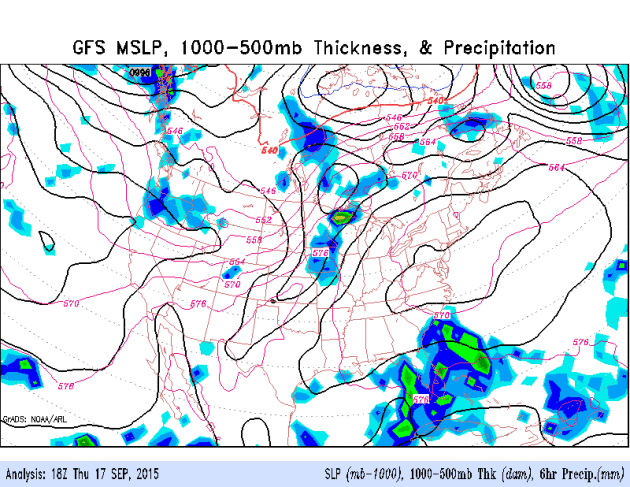 Mild Bias into Late September
Mild Bias into Late September.
NOAA's GFS model, looking out 10 days (above) shows a few residual
showers later today, instability showers but nothing severe expected,
followed by weekend clearing. A warm frontal boundary sparks a few
T-storms the latter half of next week; GFS guidance is still hinting at a
few 80s the last weekend of September. More July than September.
Symptoms of El Nino.
NOAA CPC (Climate Prediction Center) predicts a mild bias for Alaska,
the west coast, the northern USA and much of New England for October
(top graphics) and October thru December (bottom graphics). At the rate
we're going, with the temperature anomalies we're seeing across the
northern hemisphere, that's not hard to believe.
Less Snow This Winter for Minnesota and Wisconsin?
That's a hypothetical, I don't pretend to have the answer, but I'd bet a
stale bagel that we'll wind up with less snow than average, as El Nino
shifts the main branch of the storm track south of Minnesota; more mild,
Pacific air penetrating well inland than during a typical winter (when
polar winds dominate). My confidence level is low, every El Nino is
different, but the probability of a milder winter is significantly
higher. Snowfall could go either way (there's no obvious correlation
with El Nino) but NOAA CPC predicts drier weather from January thru
March, 2016 from Montana to Minnesota to the Great Lakes. Californians
are hoping this forecast verifies, with wetter than normal weather
predicted from the southwest USA to Florida and the East Coast.
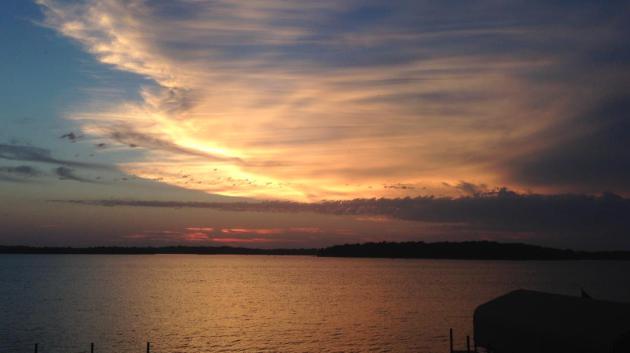 The Planet Set 3 Major Heat Records in August.
The Planet Set 3 Major Heat Records in August. Joe Romm has the sweaty details at
ThinkProgress; here's a clip: "
Like a broken record, we are breaking records for temperature over and over and over again. NOAA’s latest monthly State of the Climate Report
reports that the Earth just experienced the hottest August on record,
the hottest summer (June to August) on record, and the hottest year to
date..."
97% Odds 2015 Will Be Warmest Year on Record.
Where have I seen the 97% number before? Right, that's the percentage
of published, peer-reviewed climate scientists who see a human role in
the warming underway, worldwide. El Nino is turbocharging that warming
as unusual warmth in the Pacific juices the atmosphere. Here's an
excerpt from NOAA's
climate.gov: "...
These
circumstances raise an interesting question: given the global surface
temperature data through July 2015, what is the likelihood that 2015
will be the warmest year on record? A few of us at NOAA’s National
Centers for Environmental Information (NCEI) decided to investigate. To
answer this question, we consider two approaches that rely only on
historical statistics that describe how the remainder of the year may
play out. In other words, we don’t rely on any physical predictors such
as El Niño conditions or forecasts of future weather or climate. We use
only the well-documented, quality-controlled historical monthly global
surface temperature data archived at NCEI...."
Hottest August on Record, Worldwide. It was also the hottest meteorological summer. Here's an excerpt from
NOAA NCDC: "...
The
combined average temperature over global land and ocean surfaces for
August 2015 was 0.88°C (1.58°F) above the 20th century average of 15.6°C
(60.1°F) and the highest August in the 136-year record. This value
surpassed the previous record set in 2014 by 0.09°C (0.16°F). Most of
the world's surface was substantially warmer than average and, in some
locations, record warm during August 2015, contributing to the monthly
global record warmth. This was the sixth month in 2015 that has broken
its monthly temperature record (February, March, May, June, July, and
August)..."
Hottest Summer on Record. Here's a link to a
YouTube video, courtesy of Climate Nexus: "
June,
July and August 2015 were the hottest months ever recorded. The extreme
events of the summer, from record breaking temperatures to deadly
heatwaves and uncontrollable wildfires, preview a dangerous new norm of a
warming world."
Tsunami Impacts in Southern California.
The 8.5 quake that ripped across Chile produced an additional half foot
to just over a foot of water for coastal California early Thursday
morning. Source: NOAA.
The California Wildfires: What's Making This Season so Wild? The New York Times has a good explainer and interview; here's a snippet: "...
Two
reasons: drought and heat. Vegetation in California, from the mesquite
scrub in the desert to the tall pines in the Sierra Nevada, is as dry as
kindling after a yearslong drought, the worst in the state’s recorded
history. So fire catches more easily, spreads faster and carries farther
on the wind. The state’s major reservoirs hold less than half the water
they typically contain at this time of year, many wells have run dry,
and underground aquifers are so depleted that in some places, the ground
has been sinking as much as two inches per month..."
Photo credit above: "A
news crew runs from flames southeast of Middletown, Calif., on Tuesday, Sept. 15, 2015, as winds kick up the Valley fire." (Wally Skalij/Los Angeles Times/TNS)
August Smashes Global Heat Record as Giant El Nino Builds. Here's an excerpt from
The Sydney Morning Herald: "...
Climate
models indicate sea surface temperatures in the central tropical
Pacific are likely to rise further over the next few months, coming
close to, or possibly exceeding, monthly values observed during the
1997–98 event," the Bureau of Meteorology said in its fortnightly update on
Tuesday. The years 2005, 2010 and 2014 have all been warmer than 1998
but 2015 is shaping up to be hotter yet. Since the effects of El Ninos
tend to linger, climate experts are now pointing to 2016 as a possible
rival for the next hottest year on record..."
AP File photo credit: "
Wildfires and drought have been widespread across the western US this northern summer."
El Nino To Peak By End of 2015, Followed By Rapid Weakening: Australia Weather Bureau. Details via
Reuters: "
Climate
models suggest the 2015 El Nino will peak around the end of the year
and will then rapidly weaken within three months, the Australian Bureau
of Meteorology said on Tuesday. The 2015 El Nino is expected to be the strongest event in nearly 20 years, the bureau has said previously..."
The Blob In The Northeast Pacific Ocean.
Hakai Magazine
has an interesting article focused on the perpetual puddle of unusually
warm water in the Pacific (not directly related to El Nino). Here's an
excerpt: "
For the past couple of years, researchers from
California to Alaska have witnessed a warm-water phenomenon mess with
the coastline’s marine food web. It’s like watching a horror B-flick
unfold: suddenly, a strange miasma emerges, things get weird, and
everyone starts behaving differently. Appropriately, a scientist
nicknamed this tepid ocean broth The Blob. “It’s the type of thing you
might expect to happen once in a millennium,” says Richard Dewey,
associate director of science with Ocean Networks Canada. The
abnormally warm water is the result of a low-pressure system off
Alaska’s Aleutian Islands, called the Aleutian Low, which makes the
mid-latitude jet stream go haywire. There have been drastic effects on
both the marine environment and weather..."
Image credit above: Mark Garrison.
Global Fish Stocks Drop 50 Percent. Have Oceans Passed a Point of No Return? Here's the intro to a story at
Christian Science Monitor: "
The
number of fish swimming in the world's oceans has declined by nearly
half in just 40 years. That's according to a recent report by the
environmental advocacy group WWF, which found that amount of fish in the
ocean has decreased by 49 percent since 1970. The environmental
advocacy organization's Living Blue Planet Report
uses a marine planet index to track 5,829 populations of 1,234 species.
The species in the index were analyzed by the Zoological Society of
London (ZSL) and include a variety of mammals, birds, reptiles, and fish..."
Photo credit above: "
Gulf
menhaden carcasses washed along the shoreline of Packery Channel in
Corpus Christi, Texas, Sept. 14. The world's fish stocks have declined
by nearly 50 percent in the past 40 years, according to a WWF report
published Tuesday.
" Paul Silva/Texas Parks & Wildlife Department/AP.
How Foul Weather And Physics Can Turn a Crane Into a Tragedy.
WIRED has another interesting story; here's an excerpt: "...
Wind
is a crane’s greatest foe, and even a perfectly set-up structure is
susceptible. This is because the boom acts like a giant lever that the
wind can push upon. “If you think about it, the higher up you have the
boom, the less wind it will take to push the crane over,” says
McGettigan. On the evening of the collapse, Mecca’s airport weather
station showed sustained winds around 25 mph. This does not account for
gusts—which could have been much higher—or how wind behaves when it
encounters tall, clustered buildings like the ones that surround the
Grand Mosque..."
Photo credit above: "
Muslim
Pilgrims walk past the site of a crane collapse that killed over a
hundred Friday at the Grand Mosque in the holy city of Mecca, Saudi
Arabia, Tuesday, Sept. 15, 2015. Saudi Arabia has in part blamed the
construction giant Saudi Binladin Group for the collapse last week of a
crane at Mecca that killed more than 100 people and injured over 350
ahead of the hajj." (AP Photo/Mosa'ab Elshamy).
Solar Energy is Growing Very, Very Fast. It's Just Still Not Fast Enough. Here's a clip from a Chris Mooney article at
The Washington Post: "...
That’s
a lot of growth over the next 7 years – solar is still under 1 percent
of total generation right now — but also still a relatively small
percentage of U.S. electricity. By contrast, last year Germany got 6.9 percent of
its total electricity from solar energy. 2022 is also the year when the
Clean Power Plan kicks in — and along with favorable economics, it too
will favor solar (and wind). However, if solar is only at 2 to 3 percent
of our electricity generation at that time — with wind currently at about 5 percent and also projected to grow — then seven years from now, the large bulk of U.S. electricity will still come from fossil fuels..."
Found: A GoPro That Went to the Edge of Space and Got Lost for Two Years. How cool is this? Details via
Atlas Obscura: "
In June 2013, after months of planning, five friends launched a GoPro to the edge of space.
They attached the camera to a weather balloon, along with a phone that
logged the contraption's location and was programmed to send back a
message once it returned to cell phone range. They sent the phone off
from a spot about 20 miles from the Grand Canyon. It went up, up, up…and
then disappeared. They never heard back from the phone about its
location and figured they'd miscalculated at some point..."
LAPD Gets a Tesla Model S. Here's an excerpt from
The Los Angeles Times: "
The Los Angeles police department has been loaned a Tesla (TSLA)
Model S P85D, the all-wheel drive car that can accelerate from 0 to 60
in just over 3 seconds. The starting price for the car is normally
$105,000..."
A Holy Crap Moment: Snakes in a Toilet. If you're heading to Australia - well, you've been warned. Here's a clip from
Buzzfeed: "
Tradesmen working at the property made the discovery and contacted Budd earlier this month, 7 News reported. Budd, 26, wrote on the Townsville Snake Catchers Facebook page
that the 3-metre carpet python had sought shelter in the toilet to cool
down. “He decided to be difficult and went down the toilet through the
U-bend so we had to remove the toilet to get him out,” he added..."
Photo credit:
Elliot Budd / Via facebook.com
TODAY: Cooler with more clouds than sun, late PM shower? Winds: N 8-13. High: 66
FRIDAY NIGHT: A few evening showers, clearing late. Low: 50
SATURDAY: Sunny and Septemberish. Winds: NW 8-13. High: 69
SUNDAY: Sunny and milder. Winds: S 10-15. Wake-up: 52. High: 74
MONDAY: Sunny, a warmer wind. Wake-up: 55. High: 77
TUESDAY: Mix of clouds and sun. Wake-up: 58. High: 76
WEDNESDAY: Isolated T-storm possible. Wake-up: 59. High: 75
THURSDAY: What September? Hazy sun. Wake-up: 58. High: 77
Climate Stories....
Republican Candidates Questioned on Climate Change. If
you watched Wednesday evening there seemed to be less denial about the
science, but concerns raised about how dealing with climate change would
necessarily grow the government and cripple the economy. Here's an
excerpt from ClimateWire and
Scientific American: "...
Still,
Christie touted his state’s effort to reduce emissions through nuclear
energy and solar power. “Nuclear needs to be back on the table in a
significant way in this country if we want to go after this problem,”
Christie said. Rubio also tried to defend himself against the skeptic
label, saying scientists “can measure the climate.” “You can measure
it,” he added. “That’s not the issue we’re discussing. Here’s what I’m
skeptical of. I’m skeptical of the decisions that the left wants us to
make, because I know the impact those are going to have, and they’ll all
be on our economy...”
Exxon Believed Deep Dive into Climate Research Would Protect Its Business. Here is an excerpt from the second installment of an investigative series from
InsideClimate News: "...
Exxon
documents show that top corporate managers were aware of their
scientists' early conclusions about carbon dioxide's impact on the
climate. They reveal that scientists warned management that policy
changes to address climate change might affect profitability. After a
decade of frank internal discussions on global warming and conducting
unbiased studies on it, Exxon changed direction in 1989 and spent more
than 20 years discrediting the research its own scientists had once
confirmed. After reading the first chapter of InsideClimate News' series
on Exxon's carbon dioxide research, the company declined to answer
specific questions. In an email, Exxon spokesman Richard D. Keil said he
would no longer respond to inquiries from InsideClimate News, and
added, "ExxonMobil scientists have been involved in climate research and
related policy analysis for more than 30 years, yielding more than 50
papers in peer-reviewed publications..."
Photo credit above: "
Researchers
conducted Exxon's first climate-related project aboard the Esso
Atlantic tanker, pictured here, between 1979 and 1982."
Global Warming's One-Two Punch: Extreme Heat and Drought. One amplifies the other. Dr. John Abraham at the University of St. Thomas wrote this article for
The Guardian; here's an excerpt: "...
I have covered extreme weather quite a bit recently, because the science is so compelling and new. But a new paper published in the Proceedings of the National Academy of Sciences by doctoral student Omid Mazdiyasni and his advisor Amir AghaKouchak takes
a fresh look at this topic. Instead of just looking at heat waves or
just looking at precipitation, they looked for concurrent events.
Droughts can be caused by reduced precipitation. Hot weather speeds
evaporation and damages the environment. But droughts and high
temperatures can happen at the same time. These concurrent-event
droughts are particularly harmful, they can set in fast and severely..."
House Republicans Plan to Call for Action on Climate Change. Here's an encouraging bit of news, courtesy of
NationalJournal: "
A
coalition of House Republicans is gearing up to make waves by
calling for action to fight climate change on the eve of Pope
Francis’s visit to Capitol Hill. Ten Republicans have so far
signed onto a resolution affirming that human activity
contributes to climate change and endorsing action to respond to
the threat of Earth’s changing climate. The resolution is
expected to be unveiled as early as Thursday. Rep. Chris Gibson, a
New York Republican, led the charge in crafting the resolution
and convincing other Republicans to speak out in support..."
Time to Sue Governments for Climate Inaction? Dutch Lawyer Things So. Cue the attorneys - and the potential Mother of All Class Action Lawsuits. Here's an excerpt from
Reuters: "
Citizens
should launch lawsuits against governments that shirk their climate
change responsibilities, a leading lawyer has said after successfully
suing the Dutch government. Roger
Cox surprised legal experts in June by winning a landmark case in The
Netherlands, compelling the government to slash greenhouse gas emissions
by at least 25 percent from 1990 levels by 2020. It is currently on
course to reduce emissions by 17 percent by 2020.
It was the first time a court has determined what the minimum level of
emissions reduction should be for a developed country by 2020, Cox told
an audience in Toronto on Tuesday..." (Image: watchdog.org)
Capitalism Must Evolve to Solve the Climate Crisis. Here's a clip from an interesting essay at Australia's
The Conversation: "...
Capitalism
is, in fact, quite malleable to meet the needs of society as they
emerge. Over time, regulation has evolved to address emergent issues
such as monopoly power, collusion, price-fixing and a host of other
impediments to the needs of society. Today, one of those needs is
responding to climate change. The question is not whether capitalism
works or doesn’t work. The question is how it can and will evolve to
address the new challenges we face as a society. Or, as Anand Giridharadas
pointed out at the Aspen Action Forum, “Capitalism’s rough edges must
be sanded and its surplus fruit shared, but the underlying system must
never be questioned...”
New Web Tool Aims To Help You Divest From Fossil Fuel Stocks. Vote with your dollars. Here's an excerpt from Inside
Climate News: "...
Andrew
Behar, who runs a foundation that promotes socially responsible
investing, shared your curiosity. So he sat down at his computer to
figure out how much of his retirement fund depended on the growth and
success of fossil fuel companies. What he discovered was disturbing. And
what he came up with is FossilFreeFunds.org.
It’s a web platform that makes it easier for investors to assess the
holdings in their portfolios. It was a natural project for Behar, who is
chief executive of As You Sow, a 23-year-old nonprofit in Oakland, Calif., which promotes shareholder activism and dialogue with corporations..."
GOP Moderates to Push to Fight Climate Change.
TheHill has the story - here's an excerpt: "
A
group of moderate Republicans is working on a resolution calling for
action to fight climate change. The effort, led by Rep. Chris Gibson
(R-N.Y.) seeks to get at least some in the GOP on the record as agreeing
with Democrats and the vast majority of scientists that the climate is
changing and that human activity is to blame. But it would stop short of
endorsing any particular policy to reduce greenhouse gases, instead
calling for research into what could be done about it, according to a
GOP aide familiar with the declaration. The lawmakers are planning to
introduce their non-binding legislation Thursday, exactly a week before
Pope Francis speaks to Congress..."
Meteorological Reality From An "Albino Unicorn". Here's an excerpt of an article I wrote for Climate Central's amazing new web site,
WXshift: "...
The
concern among perpetual skeptics is that merely acknowledging the
problem will automatically grow government, adding new layers of choking
regulation and withering, wasteful bureaucracy. I get it. How does
capitalism cope with such a slow-motion and vexing problem? Our way of
life demands perpetual growth and growth requires energy, which up until
recently was exclusively carbon-based and ultimately polluting. But I’m
a naively optimistic serial entrepreneur – we can keep the lights on
and power the economy without relying on 19th and 20th century
extraction-based technologies. Thank Moore’s Law. The price of clean,
renewable solar power has dropped 80% in 5 years. At this rate everyone
will soon tap the free power of the sun. I have yet to meet anyone who
doesn’t want to save money. Even if you don’t give a whiff about climate
change you may switch to renewables because going green will put more
green back into your wallet. Remove all subsidies, including fossil
fuels. Let the markets work. Wind. Geothermal. Geogas. Hydropower.
Biofuels. Tidal power. Allow consumers to choose the cheapest, cleanest
energy alternatives available. Freedom of choice applies to energy, too..."
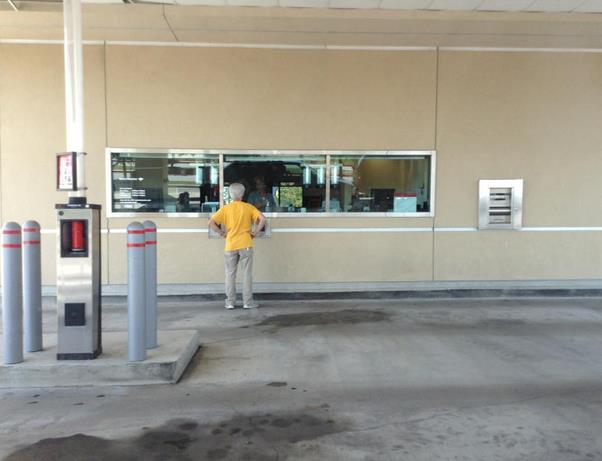
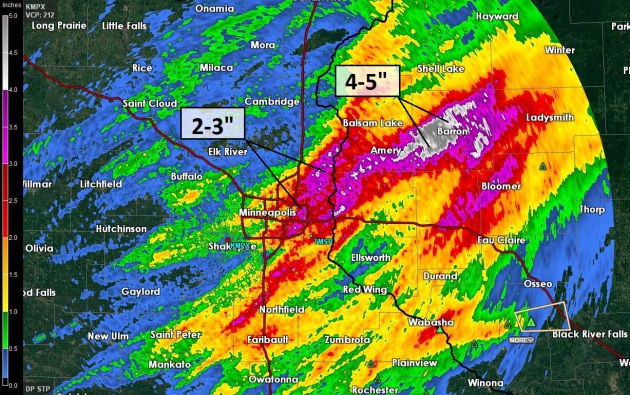


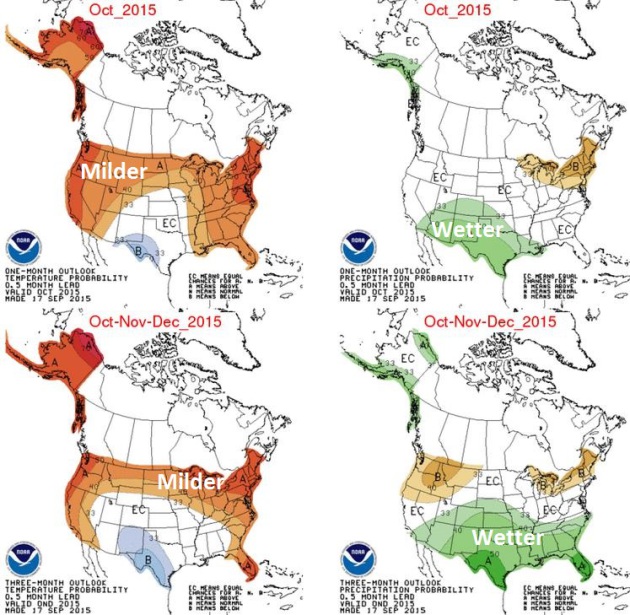
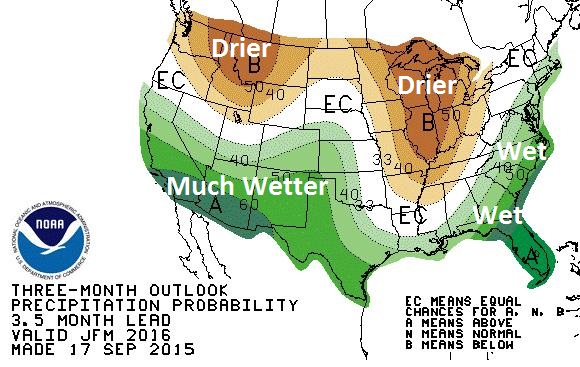

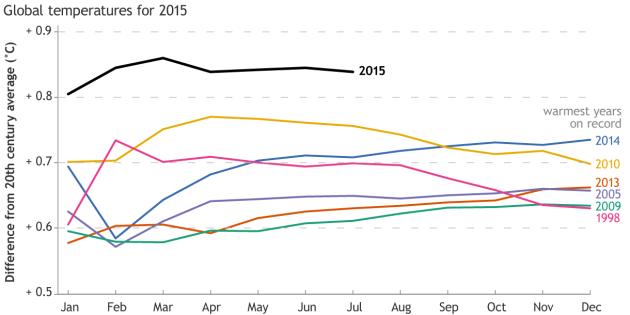
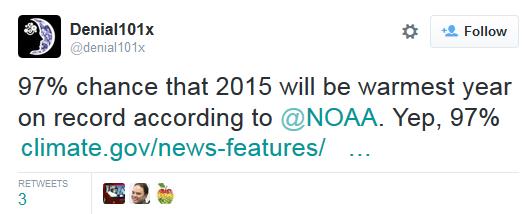
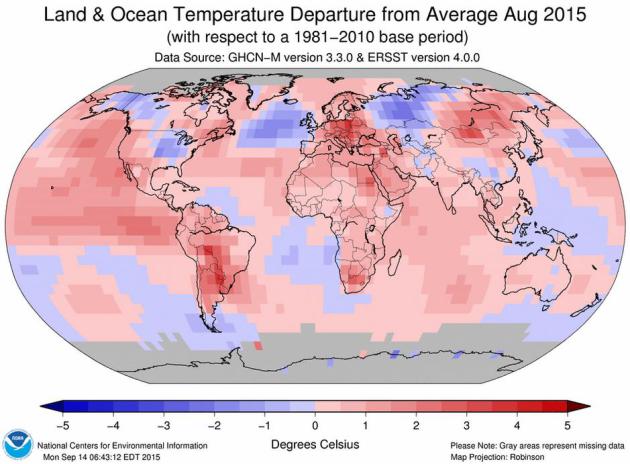
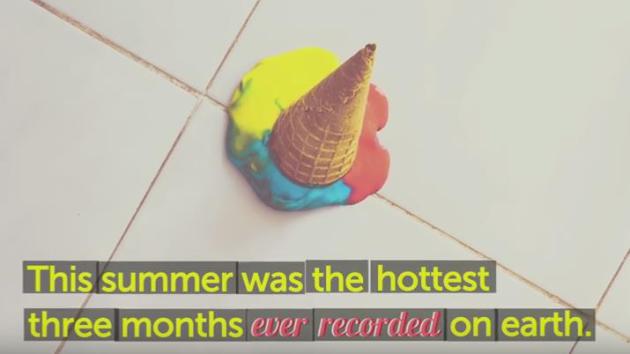
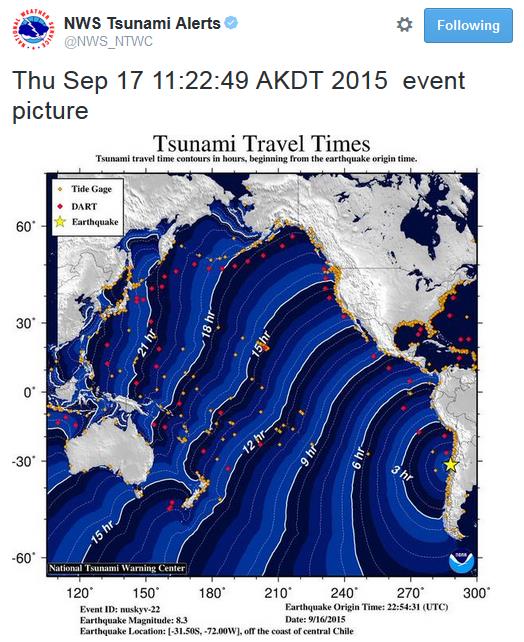
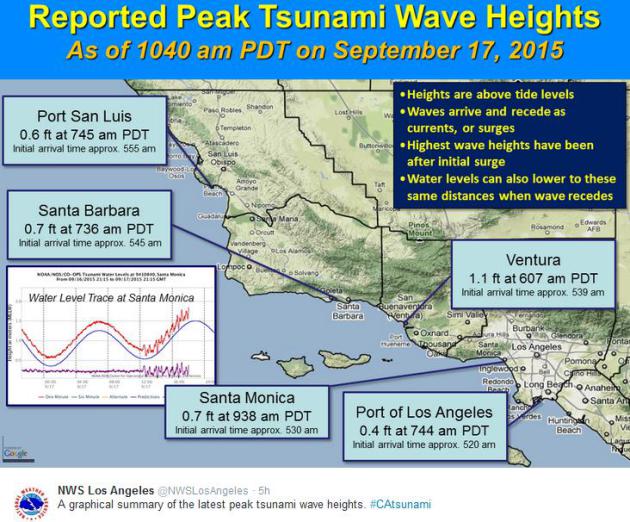
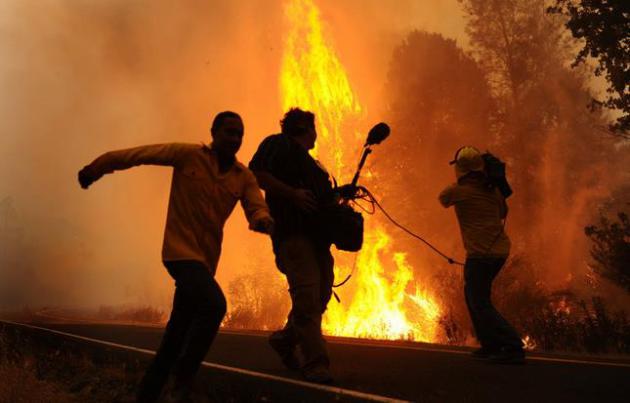
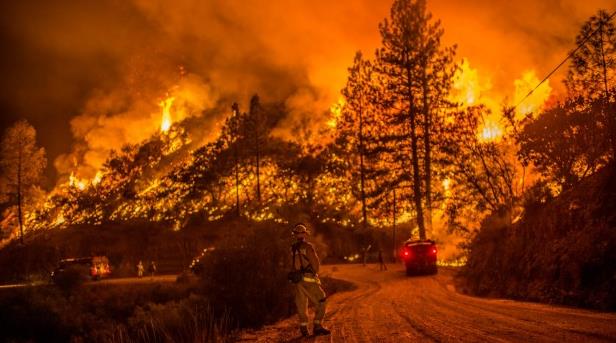
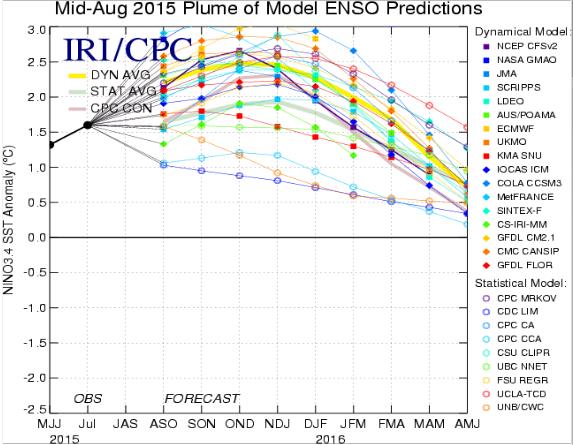
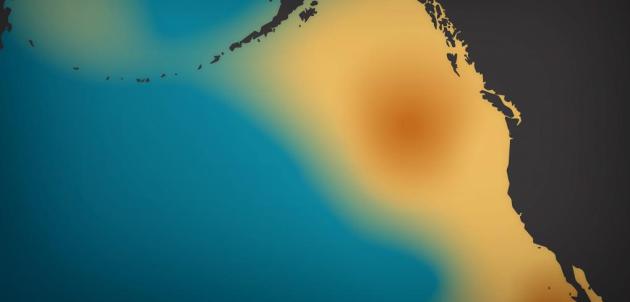
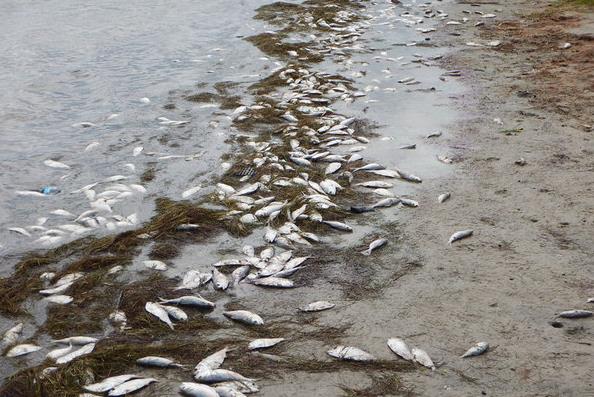

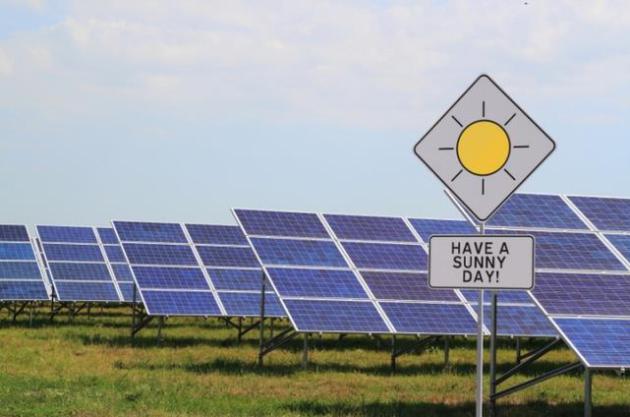
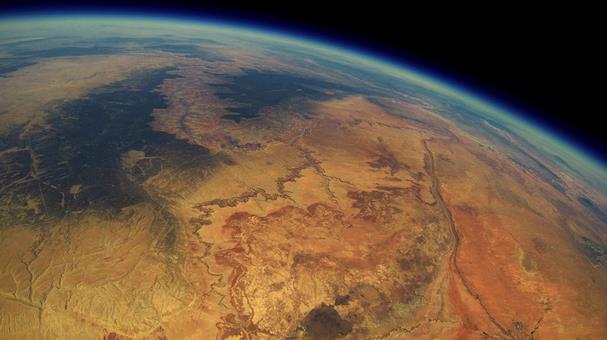
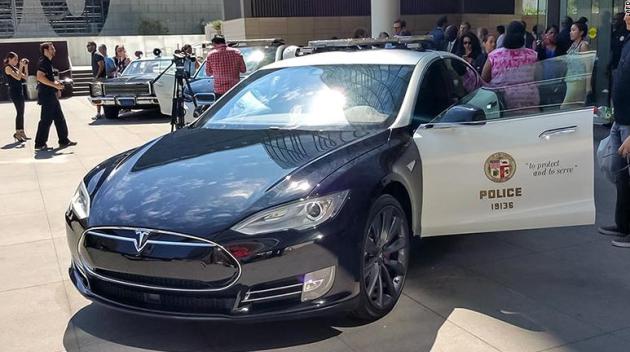




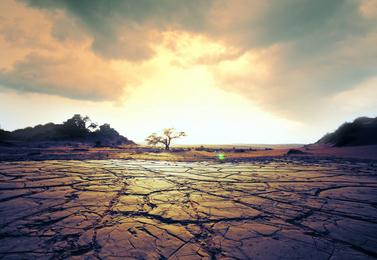
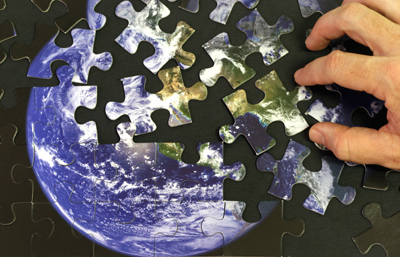





No comments:
Post a Comment